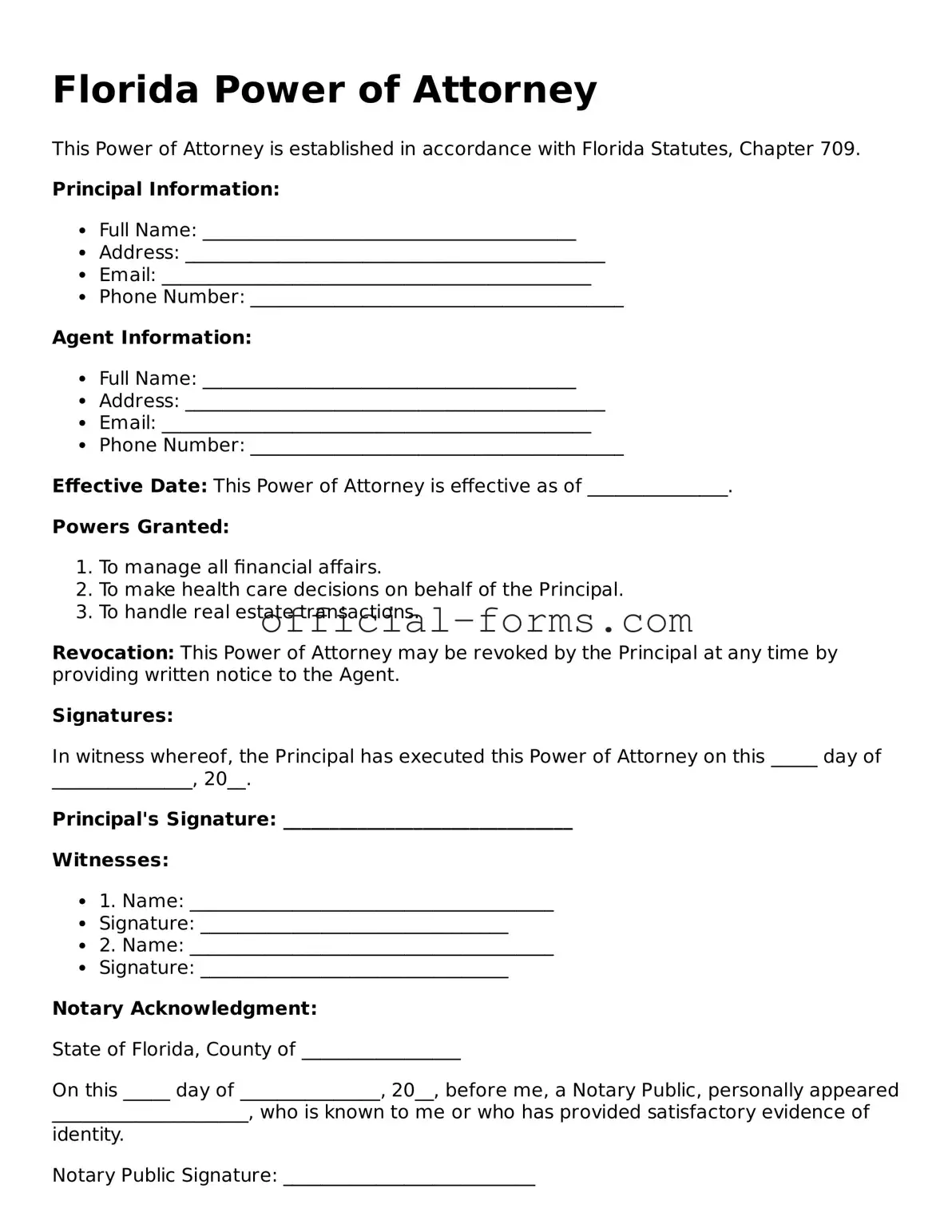Filling out a Florida Power of Attorney form can be straightforward, but many people make common mistakes that can lead to complications. One frequent error is not clearly identifying the principal and the agent. The principal is the person granting authority, while the agent is the one receiving it. If names are misspelled or titles are incorrect, it can create confusion.
Another mistake is failing to specify the powers granted. The form allows for broad or limited powers, but if the powers are vague, the agent may not be able to act effectively. It's essential to list specific powers, such as handling financial matters or making healthcare decisions.
Some individuals forget to date the document. A Power of Attorney must be dated to be valid. Without a date, it may be difficult to determine when the authority was granted, leading to potential disputes.
Not signing the form in the presence of a notary is another common issue. In Florida, a Power of Attorney must be notarized to be legally binding. If this step is skipped, the document may not hold up in court.
People often overlook the need for witnesses. Florida law requires two witnesses to sign the Power of Attorney form. If witnesses are absent, the document may be challenged, creating unnecessary hurdles for the agent.
Failing to inform the agent about their responsibilities can lead to misunderstandings. The agent should understand what they are authorized to do and any limitations placed on their authority. Clear communication is key.
Some individuals mistakenly believe that a Power of Attorney remains valid indefinitely. However, it can be revoked or become invalid under certain conditions, such as the principal's death or if the principal becomes incapacitated. It’s important to keep track of these changes.
Another mistake is not reviewing the form for accuracy before submission. Errors in the form can lead to delays or rejection. Taking the time to double-check all information is crucial.
Lastly, individuals may not consider how the Power of Attorney fits into their overall estate plan. It’s essential to understand how this document interacts with wills and trusts. Consulting with a professional can provide clarity and ensure that everything is in order.

